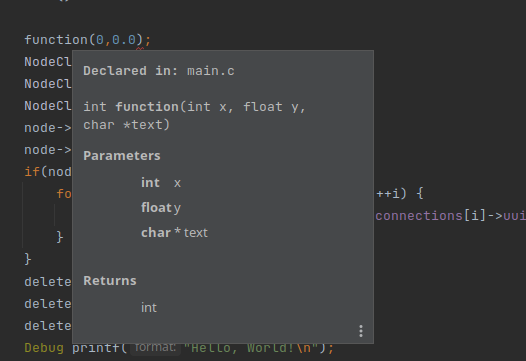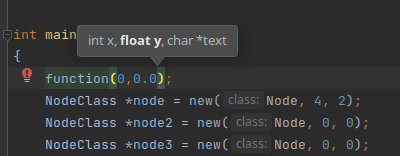Why you should not comment your code
Code is the universal language of programmers and should be written in such a way that it is easily understood. Comments can be confusing and make the code more difficult to read. They also need to be updated whenever the code changes, which can be a tedious and time-consuming task.
Instead of commenting the code, it's better to write clean, well-structured code that explains itself what it does. Using descriptive variable and function names, avoiding overly complex and long functions, and organizing your code logically can all help make your code easier to understand.
Bottom line, it's better to write clean, well-structured code that explains itself what it does, instead of depending on comments to clarify how the code works.
When we write algorithms and we begin from scratch a developer write down some sentences that describe what the algorithms themselves are going to do.
For example:
int main() {
// FIRST STEP get some inputs
// SECOND STEP process inputs and store them in a variable
// THIRD STEP print on screen some useful infos about the inputs
return 0;
}
In the end when our code is completed, all of the comment above can be removed, because variables and functions names can can perfectly explains what they're going to do.
#include <stdio.h>
double calculateAverage(int values[], int numValues) {
int sum = 0;
for (int i = 0; i < numValues; i++) {
sum += values[i];
}
return (double) sum / numValues;
}
int main() {
int grades[5] = {85, 90, 92, 88, 80};
double averageGrades = calculateAverage(grades, 5);
printf("The average of grades is: %.2f\n", averageGrades);
return 0;
}
Of course this is good when you already know the syntax keywords and you have experience with writing code, even after years you can read and understand the code above.
#include <stdio.h>
// function to calculate the average of values in an array
double calculateAverage(int values[], int numValues) {
int sum = 0; // variable to store the sum of values
// loop through each value in the array
for (int i = 0; i < numValues; i++) {
sum += values[i]; // add the current value to the sum
}
// calculate and return the average
return (double) sum / numValues;
}
int main() {
int grades[5] = {85, 90, 92, 88, 80};
// call the calculateAverage function to get the average of the grades
double averageGrades = calculateAverage(grades, 5);
printf("The average of grades is: %.2f\n", averageGrades);
return 0;
}
Don't you think that is redundant to have comments and that increases the amount of text in the code?
Suppose the code had to be rewritten and instead of looping with a for loop a recursive function was created?
#include <stdio.h>
double calculateAverage(int values[], int numValues, int sum, int i) {
if (i == numValues) {
return (double) sum / numValues;
}
sum += values[i];
return calculateAverage(values, numValues, sum, i+1);
}
int main() {
int grades[5] = {85, 90, 92, 88, 80};
double averageGrades = calculateAverage(grades, 5, 0, 0);
printf("The average of grades is: %.2f\n", averageGrades);
return 0;
}
With comments you have to edit them too and again, if the code is well written u don't need extra informations.
But when comments are useful, when they come in help?
IMHO the best place to put comments is on top of functions definition/declaration (depends on the language are you using)
For example:
/**
*
* @param self
* @param target
* @return
*/
NodeListClass *push(NodeListClass *self, NodeClass *target){
NodeListClass *node_list = self;
node_list->connections = (NodeClass**)realloc(node_list->connections, sizeof(NodeClass*));
assert(node_list->connections);
node_list->connections[node_list->size] = target;
node_list->size++;
return node_list;
}
In this way you will have the possibility to describe the function, in the case of most professional IDEs you will be able to fold/unfold the comments so as to reduce the space occupied by the text that is not code, again in some code editors by hovering the mouse over a function you could get useful information about it, in some cases you can help the autocomplete plugins/extensions to help you with the setting of the parameters of the function itself and above all you could be able to generate through the tools that allow it (Doxygen for example) the documentation taken directly from the source code.


Conclusions
So, like I said, doxygen comments can and should be used when you're writing code, programming language aside. This will force you to write more self-explanatory functions and variables and help you maintain a clean codebase by giving you a head start in generating documentation plus some help with most IDEs when writing.
Having said that I think that's all and I conclude by saying that in the end "as long as it works" and this is just my humble opinion based on my experiences.
Goodbye
Daniele.